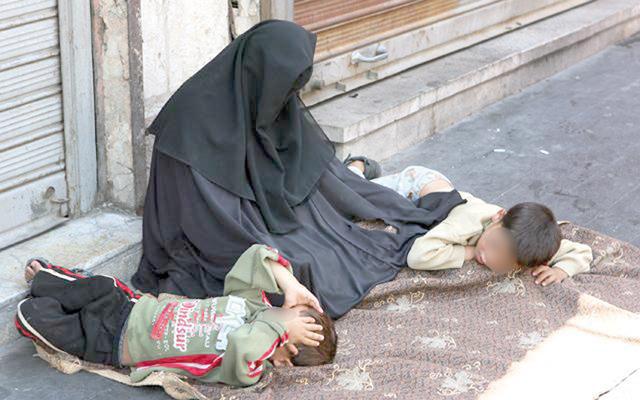You are here
Authorities to list organised begging as human-trafficking offence
By Maram Kayed - May 29,2019 - Last updated at May 29,2019
AMMAN — Begging has recently taken on “multiple new forms”, according to Spokesperson of the Ministry of Social Development Ashraf Khreis, who said that the ministry is cracking down on all illegal types of money soliciting.
“Organised begging is now taking on the shape of online donations. A con artist fakes a set of documents, posts them on social media with a touching story and asks people to transfer money to a bank account,” said Khreis.
This practice is commonly referred to as Internet, online or e-begging, as coined by multiple online sources.
Due to the novelty of the new techniques, there are yet regulations and laws to address the spread of the e-begging phenomenon.
Meanwhile, the ministry is drafting new laws designed specifically to deal with the trend and for any other forms of begging that may emerge later, the social development official said.
“The Jordanian Penal Code, Article 389, states that a beggar is ‘anyone who asks for money, uses children or a person with disabilities on his/her behalf to do so or collects donations for a fraudulent cause’,” Khreis noted.
“This clearly describes online begging,” added Khreis.
For his part, the director of the Anti-Vagrancy Department at the ministry, Maher Kloub, said his department has cracked down on 2,000 beggars since the start of the year.
Around 150 beggars were found exploiting newborns for their gain, using them to “elicit people’s sympathy”, he added.
“Some of these organised beggars carry around children that are not their own. Even if they are, however, the department transfers the child to child services,” said Kloub.
In Ramadan, more than 300 beggars were rounded up in Amman and 400 in various governorates, according to the Anti-Vagrancy Department.
Underage beggars are not uncommon, Kloub underlined.
“Around 60 beggars under 18 years old were caught in Amman,” he said.
“Organised beggars use children, their own or someone else’s,” Kloub noted, insinuating that beggars rent children out [like cars], as well as women and people with disabilities.
“They pay for them to help with their dirty work. This is why the ministry is working towards listing organised begging as a human trafficking offence,” the anti-vagrancy official announced.
For both online and real-life begging, the ministry intends to intensify penalties, the spokesperson underlined.
The aim is to protect the vulnerable from exploitation and keep the streets safe, Khreis explained.
“There will be laws that regulate online fundraising for cases that require real help. The ministry does not intend on punishing those trying to truly help others,” concluded Khreis.
Related Articles
AMMAN — The numbers of juveniles involved in begging nearly halved in 2022, according to the Ministry of Social Development. Comp
AMMAN — Begging is seriously affecting the Kingdom’s “social security and the way people view Jordan”, according to a Social Developme
AMMAN — Since the end of December 2019 up until Wednesday, seven people were detained for the exploitation of child beggars and were referre












